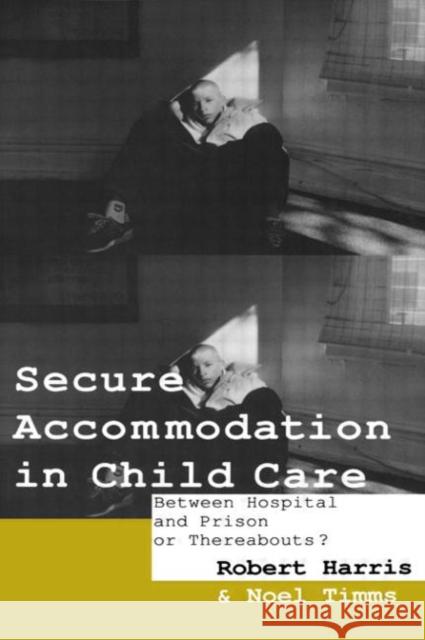Secure Accommodation in Child Care : 'Between Hospital and Prison or Thereabouts?' » książka
Secure Accommodation in Child Care : 'Between Hospital and Prison or Thereabouts?'
ISBN-13: 9780415062824 / Angielski / Miękka / 1993 / 208 str.
Some children seem to present parents, teachers, social workers and courts with such serious or disparate problems that holding them in secure accommodation is apparently the only way to control them. How this comes about, and by what criteria social workers and courts help them make these difficult decisions, are the subjects of this intriguing and innovative book. In Secure Accommodation in Child Care, Harris and Timms use a major empirical study of children in secure accommodation as a basis for an analysis of relations between the state, the family and the difficult child. By synthesizing literary and social science theories, they examine court procedures and the experiences of social workers and the children themselves to explain how professionals and children make sense of their respective worlds, and how that sense is translated into personal or professional action. The functions of secure accommodation, although legally ascribed, are fundamentally ambigous; to lock-up children by means of an authorized strategy which embraces both the sick and the wicked suggests the existence of a less than obvious relation between meeting needs, and furthering interests.
For some children secure accommodation seems to be the only way to control their disparate number of "problems". But why is this so, and from what criteria do social work professionals decide that a child should be put into secure accommodation? In Secure Accommodation in Child Care the authors use an empirical study of secure accommodation as a basis for an analysis of the relations between the state, the family and the "difficult" child. By looking at court procedures, social workers and the children themselves they explain how professionals and children make sense of their worlds, and how they translate that "sense" into personal or professional action.
Secure Accommodation in Child Care is essential reading for social service managers, social policy makers, social workers and health care professionals as well as for students and lecturers of social policy and social work.











